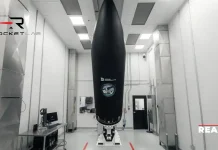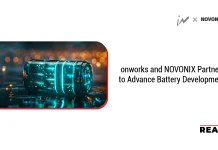Here is Read Magazine’s Weekly Roundup of the top news from global markets. In this fast-paced world, breaking down information helps readers grasp the nuances that follow the news.
In Aerospace news this week…
Ursa Major to Provide Upper Stage Rocket Engines for Astra’s Rocket 4
Ursa Major, America’s leading privately funded company that focuses solely on rocket propulsion, announced an agreement with Astra that will support next-generation communications, national security and defense, and Earth observation.
In Automotive news this week…
Airbiquity Selected by LiveWire to Enable Over-the-Air Software Updates for Electric Motorcycles
Airbiquity, a global leader in connected vehicle services, announced it was selected by LiveWire Group (LiveWire) to enable remote software updates for its global electric motorcycle portfolio. Airbiquity’s OTAmatic solution will allow LiveWire to reliably and securely deliver over-the-air (OTA) software updates to their vehicles while conserving limited vehicle hardware resources and minimizing inconveniences or downtime—ensuring LiveWire riders spend more time riding their bikes.
In Biotechnology news this week…
CPC Launches Biopharma’s Largest Aseptic Connector
CPC, part of Dover and a leading manufacturer of connection technologies used in biopharmaceutical processing, announced the launch of its AseptiQuik W Series, the industry’s largest genderless aseptic connectors. The new 1-1/2-inch flow path solution easily transfers hundreds of liters per minute, significantly reducing fluid transfer times across bioprocesses.
In Chemicals news this week…
Sasol Chemicals, a business unit of Sasol Ltd, and Mission Possible Partnership (MPP) announced a collaboration to evaluate potential projects for Sasol’s sustainability hub at its Lake Charles, La. location. MPP will advise Sasol on potential projects related to the use of hydrogen as an energy source; carbon capture, use and storage; and sustainable aviation fuel production, with the goal of advancing one or more projects to final investment decision.
In Energy & Power news this week…
LONGi to launch PLAN GET Kick-off project in Madrid
LONGi, the exclusive global solar energy partner of tennis’ ATP Tour, will launch the kick-off project of its PLAN GET initiative (Green, Energy, Tours) at the Mutua Madrid Open from April 24 to May 7. ‘Breathe New Life into Old Items’ will be the starting point for PLAN GET’s ultimate goal of creating a healthy, shared and sustainable environment for the planet.
In Healthcare this week…
PicnicHealth, a patient-centered health technology company, announced its intent to globally expand its partnership with Roche and Genentech to accelerate neurological disease research through investments in real-world data. The partnership, which launched in 2018 with a custom cohort of 5,000 multiple sclerosis patients, FlyWheelMS, has grown to include investments in Huntington’s Disease, Alzheimer’s Disease and Alzheimer’s Disease related dementias (AD/ADRD), and myasthenia gravis (MG) cohorts.
In Semiconductor this week…
Synopsys and TSMC Collaborate to Jumpstart Designs on TSMC’s N2 Process with Optimized EDA Flows
In a continuing effort to meet stringent design targets for next-generation system-on-chips (SoCs) Synopsys, Inc. announced a collaboration with TSMC to deliver digital and custom design EDA flows on TSMC’s most advanced N2 process. The TSMC N2 process leverages nanosheet transistors to offer up to 15% speed improvement at the same power or 30% power reduction at the same speed when compared with the TSMC N3E process, all while increasing chip density.
Article of the Week
How is 5G and the Future of Autonomous Vehicles Benefitting Consumer
The possibility of connected driverless automobiles using 5G networks is still some years away because 5G mobile networks are still in the early phases of deployment. Autobahn-level research speeds are being reached in autonomous driving as carriers pour billions into 5G networks. 5G and linked cars will need to coexist on the road if autonomous vehicles are ever to become a reality. By utilizing multi-access edge computing (MEC), made possible by the reduced latency of 5G, the self-driving car can be more affordable, secure, and dependable.





